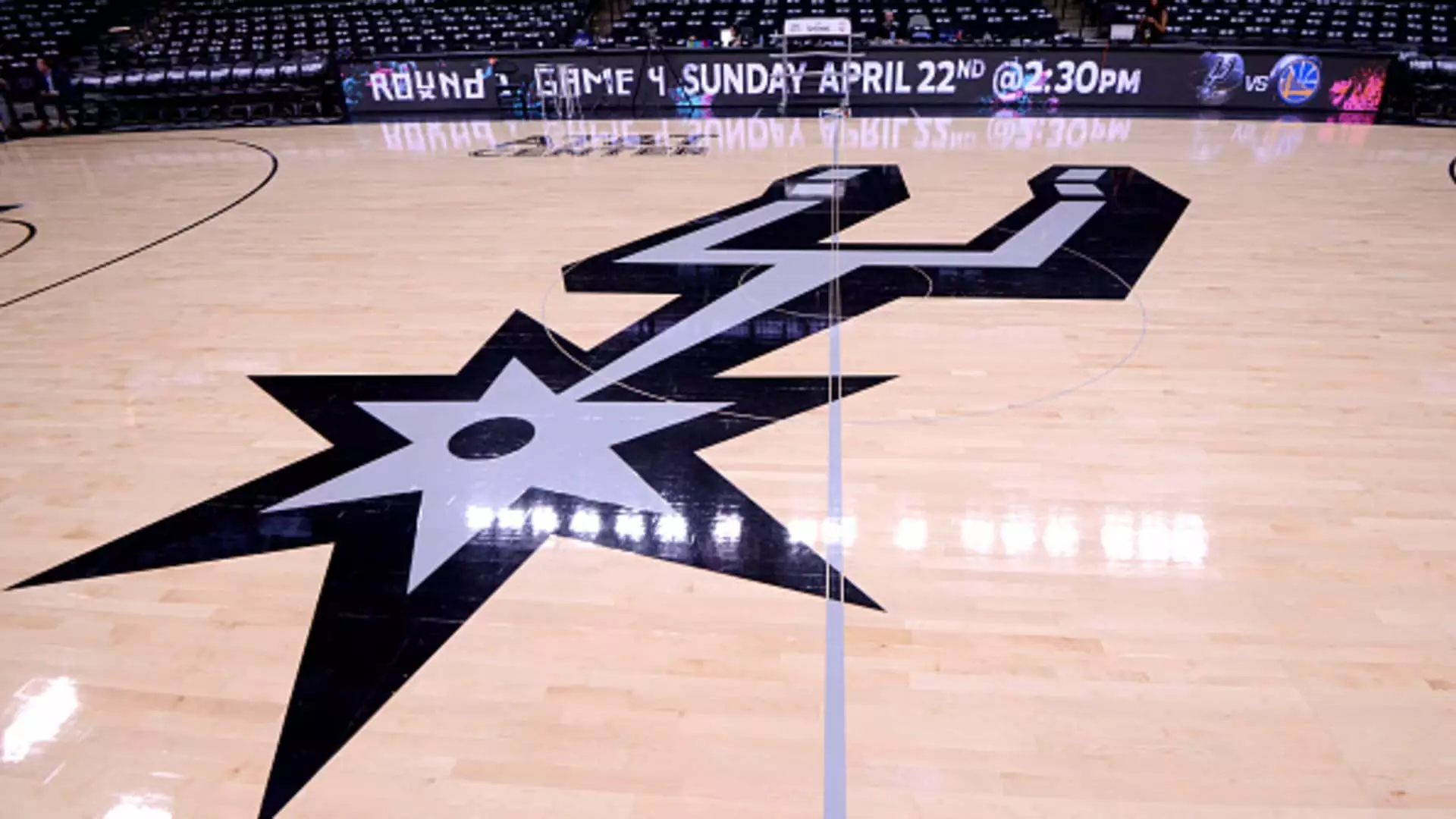In the dynamic realm of professional sports, ownership stakes not only reflect individual passion for the game but are increasingly seen as strategic financial investments. Recent reports indicate that businessman Paul Viera, the founder and CEO of Earnest Partners, is amplifying his stake in the San Antonio Spurs from 5% to an impressive 11%. This notable increase is inspired by rising valuations within the NBA, as franchise values soar due to lucrative media deals and the hunger of investors to be part of high-profile teams.
This situation highlights a broader trend where sports franchises, historically, have become attractive economic propositions for investors across various sectors. Viera’s decision is emblematic of a larger pattern, where the stakes, literally and figuratively, are rising in the National Basketball Association.
Two weeks prior to this announcement, Viera made headlines by acquiring the remaining interest in the Spurs previously held by Aramark, a food services heavyweight, at a significantly discounted rate. Industry insights reveal that the transaction values the Spurs at an estimated $2.5 billion. This valuation scenario is pivotal; partial owners often secure better deals when acquiring additional stakes that grant them limited control over operational decisions.
For context, Viera originally purchased his 5% stake in the Spurs without publicly disclosed terms. However, according to Aramark’s recent annual report, the company recorded a partial sale of its stake for $98.2 million, leading to a pretax loss of $1.1 million in fiscal year 2023. Such financial intricacies signal not just the evolving nature of team ownership, but also the critical role that strategic decision-making plays in navigating the sports investment arena.
The San Antonio Spurs boast a diverse ownership group, led by majority owner Peter Holt, who has been a vital part of the franchise since joining the ownership ranks in 1996. The ownership landscape also features prominent figures such as Michael Dell, CEO of Dell Technologies, and former NBA star David Robinson, adding depth and diversity to the team’s management strategies. Each minority owner, including venture capital firms like Sixth Street Partners, contributes different skills and perspectives, highlighting the NBA’s concerted effort to foster diverse ownership.
Despite the Spurs’ rich history of five NBA championships, their recent performance has raised questions. The team finished the 2023-24 season with a disappointing 22-60 record, failing to reach the playoffs since 2019. Nevertheless, with the emergence of Victor Wembanyama as a potential superstar, the Spurs’ future, both on and off the court, seems promising. Investors like Viera are betting on this transformative potential to enhance their financial returns.
The current landscape of NBA ownership is invigorated by an expansive $76 billion media deal that’s expected to reshape the financial strategies of franchises across the league. This lucrative agreement places teams like the Spurs in a desirable financial position, with the value of controlling stakes also witnessing a notable escalation. For instance, former NBA player Junior Bridgeman recently acquired a 10% stake in the Milwaukee Bucks under a deal that valued the team around $4 billion.
Such valuations suggest that both the Spurs and the Bucks hold significant market value, and as the trend of former players stepping into ownership roles continues, the NBA is diversifying its ownership demographic. Prominent examples include Grant Hill with the Atlanta Hawks and Dwyane Wade with the Utah Jazz, reflecting a broader initiative by the league to promote diversity within its ownership ranks.
The spotlight is now on the Boston Celtics, as news breaks that co-owner Wyc Grousbeck intends to sell his stake in the team, with expectations that the franchise could fetch between $5.5 to $6 billion. This figure starkly contrasts with Grousbeck’s acquisition price of $360 million in 2002, further showcasing the surging values in NBA franchise ownership.
As Viera’s stake in the Spurs solidifies, analysts and investors alike are watching closely, contemplating the shifting dynamics of wealth and influence within basketball franchises. The growing number of diverse owners augurs well for representation in a league that has always prided itself on cultural inclusivity and community involvement. The changing landscape not only influences franchise values but also shapes the future narrative of the sports investment world.


Leave a Reply